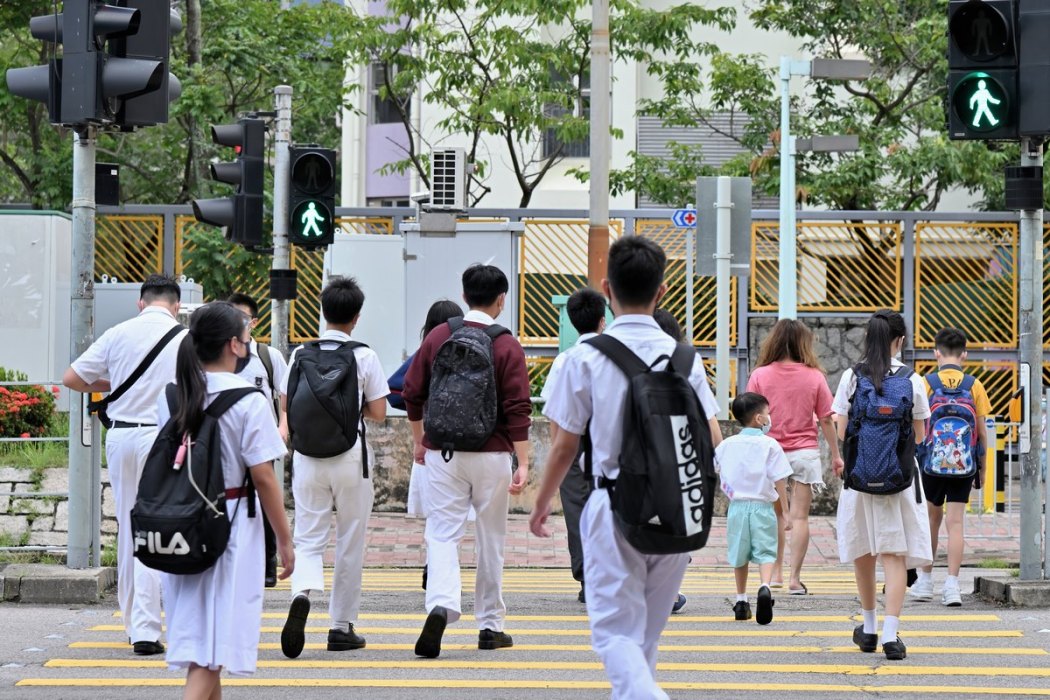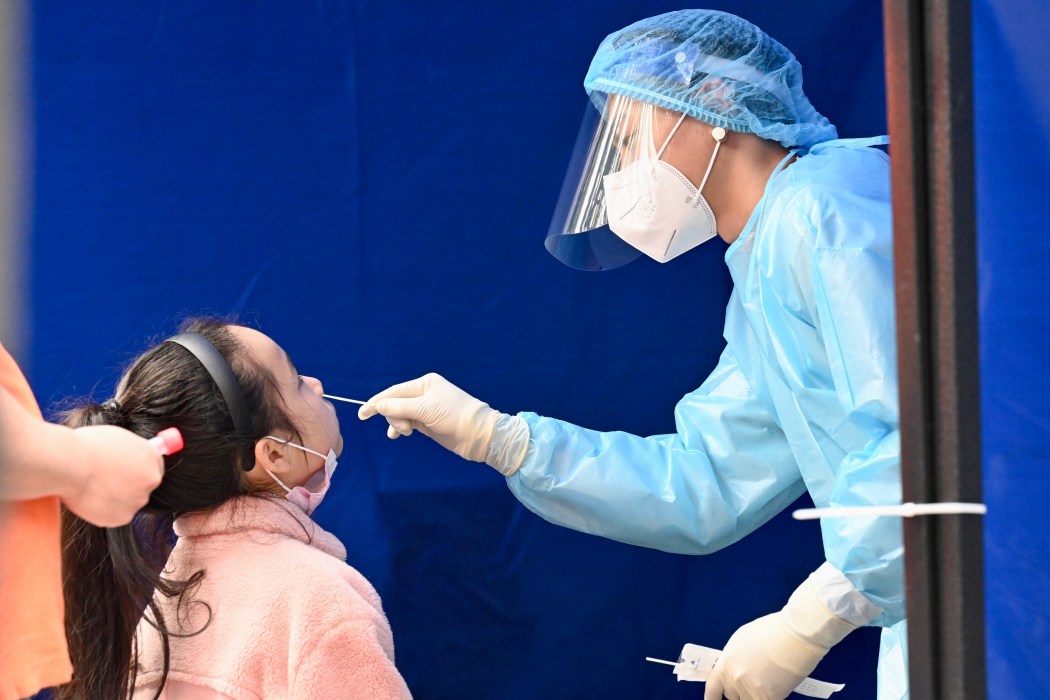A recent rise in student suicides in Hong Kong has no universal remedy and and a collective societal effort is required to protect youth mental health, Chief Executive John Lee has said. However, he added that some students had “a tendency of not seeking help” and causing themselves harm.

A number of students have taken their lives since the full resumption of classes this September following the Covid-19 pandemic. As of October, a total of 27 suspected suicides were reported by primary and secondary schools in the city, marking a four-year high.
In response to a question posed by HKFP during Lee’s regular press briefing on Tuesday, the chief executive said some students had “a tendency of not seeking help but trying to do something which is harmful to their own health.”
“There is no single panacea,” he said. “[Reversing the trend of student suicide] has to be a collective effort led by government, actively participated [in] by everybody in the society.”
Lee said that while it was the government’s responsibility to promote and protect the mental health of the city’s minors, everyone could help look out for those in need.
“They are in different corners, they are in different schools, and they are in different districts,” he said. “It’s important that neighbours, friends, relatives, peers, and also stakeholders who come across their cases… will help them and seek assistance from government when it happens.”
He reiterated a three-tier mechanism designed to help those who may be experiencing suicidal thoughts – provided by the Education Bureau, the Labour and Welfare Bureau, and the Health Bureau and coordinated by Deputy Chief Secretary Warner Cheuk – that authorities earlier discussed in the legislature.
Under the proposed mechanism, teachers and social workers based in schools would be responsible for identifying students who may be experiencing suicidal thoughts, and schools unable to handle mental health issues would receive “external support” from welfare and counselling professionals.

Serious cases would be referred to the city’s public doctors and psychiatrists and be given priority by the Hospital Authority.
Lee added that “character building” could help prevent student suicide, by providing programs that promote discipline training and career path development for young people.
‘Mental resilience’
Lee on Tuesday also touched on the possible causes behind the recent upsurge after the authorities earlier pledged to study recent cases to identify the risk factors behind student suicide.
“So far, the indication has been that our youth faces pressure in relation to… their studies, and also in relation to their daily dealing with people.”

He added that three years of Covid-19 pandemic could be another factor, and “right assistance” was needed to build up students’ “mental capacity and mental resilience.”
Secretary for Education Christine Choi said last week that the current situation had to do with “the greater challenges facing students after the resumption to normalcy,” with adjusting to school life and issues socialising among the problems identified by the authorities after a review of recent cases.
But suicide was a complicated problem and could not be attributed to any single factor, Choi said in a written reply to questions posed by lawmakers.
A rising trend
In 2020, Hong Kong schools reported 21 suspected student suicides to the authorities, according to figures released by the Education Bureau. The figure rose to 25 in 2021 and remained the same in 2022.
According to the Hong Kong Jockey Club Centre for Suicide Research and Prevention, thirty-seven students took their own lives between the beginning of 2023 and early November. The figures peaked in May and October, the experts said, while five students had attempted suicide on school premises.
NGOs working on suicide prevention, including the Samaritan Befrienders Hong Kong and Caritas Hong Kong, also said that they had observed heightened demand for their counselling services, especially from secondary school students. Cases of youths experiencing suicidal thoughts had also risen.
Suicide figures are finalised by the Coroner’s Court, which publishes an annual report summarising the yearly statistics of death in the city. According to the report, 39 Hongkongers aged 19 or under died by suicide last year, up from 15 in 2013.
| 💡If you are in need of support, please call: The Samaritans 2896 0000 (24-hour, multilingual), Suicide Prevention Centre 2382 0000 or the Social Welfare Department 2343 2255. The Hong Kong Society of Counselling and Psychology provides a WhatsApp hotline in English and Chinese: 6218 1084. See also: HKFP’s comprehensive guide to mental health services in Hong Kong. |
Support HKFP | Policies & Ethics | Error/typo? | Contact Us | Newsletter | Transparency & Annual Report | Apps
Help safeguard press freedom & keep HKFP free for all readers by supporting our team

LATEST FROM HKFP
HKFP has an impartial stance, transparent funding, and balanced coverage guided by an Ethics Code and Corrections Policy.
Support press freedom & help us surpass 1,000 monthly Patrons: 100% independent, governed by an ethics code & not-for-profit.











